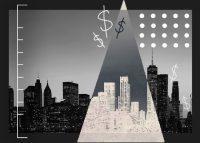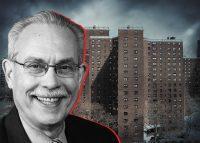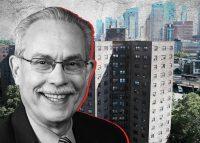New York City Housing Authority tenants have many problems to deal with, but paying the rent if they lose their jobs probably won’t be one of them.
The agency’s policy of keeping rent at 30 percent of a tenant’s income amounts to a built-in safety net for residents who suddenly find themselves unemployed during the coronavirus pandemic or any other time, according to the public housing authority.
“When NYCHA residents lose full or partial income, or receive unemployment benefits, due to Covid-19 or any other circumstance, their rent will decrease and will still always be 30 percent of their income,” the agency said in a statement. “This means that if the household income is zero, then the rent is zero.”
Read more



The policy provides oft-beleaguered NYCHA tenants with a unique form of stability at a time when calls have been growing for Gov. Andrew Cuomo to cancel rent payments across the state.
Cuomo has resisted so far, arguing that the state’s temporary ban on evictions has taken care of the issue — although he did say this week that he is looking at “a number of options” for when the moratorium expires in June.
But the income-adjusted rent policy is hardly a cure-all for the Housing Authority, which noted that a drop in rent payments reduces its revenue. This will further reduce the agency’s notoriously limited ability to repair and maintain its buildings and comes just a few months after NYCHA CEO Gregory Russ said the agency needed $40 billion in repairs.
“NYCHA can bridge the loss of rental income for a very limited period of time but will need additional federal operating funds to do so for the long term,” the agency said.
The agency’s operating reserve covers 1.9 months of expenses, which is not enough to make up for the lengthy rent losses it is anticipating from the pandemic.
The authority’s 2019 revenue was $3.51 billion, of which $1.05 billion came from rent, according to the City Council. Rent was its second largest revenue source, after federal assistance programs.
There’s another issue: processing all the requests for reduced rent. More than 400,000 tenants have leases to live in the system’s roughly 176,000 apartments.
Victor Bach, senior housing policy analyst at the Community Service Society of New York, expressed concern about the authority’s ability to handle a large influx of income recertification applications in a timely manner. He said there had already been a 20 percent jump in income recertifications compared to last year as of late April, citing data from the agency.
“If I were advising NYCHA, I would suggest that they streamline the process, given what’s happening,” he said, “and accelerate the processing of these recertification applications so that families aren’t stressed out on rent arrears.”
He continued, “I believe, currently, it takes a couple months for them to process an application, and given the circumstances, that’s too long.”
Bach also expressed concern over NYCHA’s ability to sanitize its buildings quickly and effectively, especially given its high number of disabled and elderly tenants.
“I don’t know how much they’re able to do that kind of outreach to vulnerable households,” he said. “I’m hoping they are accelerating that process as well.”
NYCHA has not increased the number of staffers handling income recertification, but the agency is aiming to expedite its rent hardship program, in part by using a new waiver from the Department of Housing and Urban Development that lets families self-certify income losses. In other words, tenants do not need proof from an employer to verify that they have lost income.
There are also no waiting periods to apply for income recertifications. Tenants who lose their jobs or see their hours cut because of coronavirus should report it immediately, the agency said.
